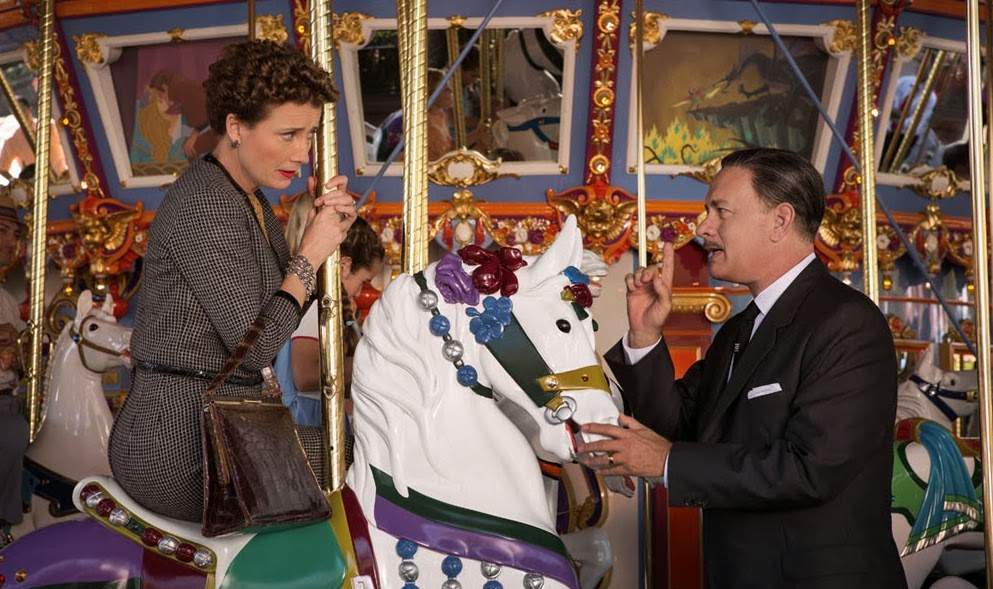Saving Mr Banks
An unexpectedly tender film about Walt Disney's 20-year effort to bring Mary Poppins to the big screen.
Overview
There can't be many tasks more challenging for a performer than making an unlikeable character likeable, yet when done right, that character's humanity and compassion can often burst though — amplified and disarming — with a powerfully cathartic release. Such is the case in John Lee Hancock's tender-hearted tale Saving Mr Banks, which chronicles Walt Disney's 20-year effort to bring Mary Poppins to the big screen.
Disney, however, is not the focus of the film. The man was far from saintly, definitely, but — when played by Tom Hanks — his likability was assured. Instead, Saving Mr Banks focuses on the author of that beloved children's story, PL Travers (Emma Thompson), who was every bit the unlikeable character: stubborn, terse and paradoxically impolite in her constant castigations of anyone who failed to observe common etiquette. Common British etiquette, mind you.
Beginning in 1961, Travers had found herself in financial trouble when the royalties from Mary Poppins had all but dried up. Faced with the possibility of losing her London home, she finally acquiesced to the pleas of her exasperated agent and travelled to Hollywood to discuss selling the film rights. Her unease, one she'd staunchly maintained for two decades, was that the story and characters would be 'Disneyfied' by way of frivolous cartoons, childish singing and dancing animals. An author seeking creative control was nothing new to Hollywood, but nobody could quite understand why Travers guarded her story with such unyielding ferocity.
That mystery is what lies at the heart of Saving Mr Banks. Presented as a dual narrative, the movie flicks back and forth between Travers' present-day obstinacy in the Disney Studios and her difficult childhood in the Australian outback, with the latter periodically informing and recasting our understanding of the former.
It's no secret the true subject of Mary Poppins was not the children, but rather their father — Mr Banks — and the quiet crusade by Poppins to reconnect him with his family. Accordingly, Saving Mr Banks's early scenes focus on the relationship between the young Travers (whose real name was Helen Goff) and her alcoholic yet devoted father, played by Colin Farrell. The parallels are all a little too neat, psychologically, but very much contribute to both the story's greater meaning and the audience's eventual appreciation of Travers' hidden benignity.
In the lead, Thompson is unsurprisingly sensational. What initially feels like an exaggerated and caricaturesque performance proves remarkably spot-on courtesy of some unmissable credits, and her ability to transform both mood and meaning with the tiniest change of facial expression demonstrates why she remains top of her game.
Hanks is reserved in his turn as Disney, though still proves capable of stealing a scene — most notably during an exquisite description of his own father's strict approach to parenting. In supporting roles, Paul Giamatti offers a lovely turn as Travers' driver, while Bradley Whitford, Jason Schwartzman and BJ Novak are excellent as the bewildered creatives charged with appeasing Travers and adapting her book to the screen.
There's a good chance you'll cry in this film, both in moments of tragedy and sentimentality — but really, that's always been the Disney formula. Sweet, heartwarming and consistently funny, Saving Mr Banks is every bit the opposite of its main character, but — just like her — ultimately surprises with some unexpected tenderness.







